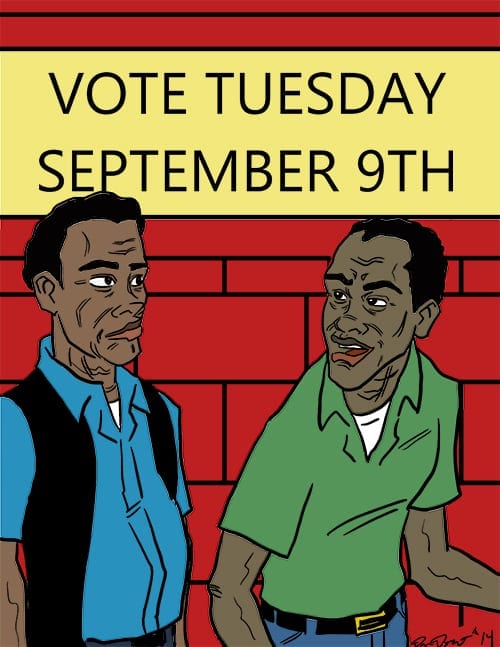
Who would have thought that in this the 21st century blacks would be loath to oppose racial oppression in any city or town. That was the case in Ferguson, Mo., until a white policeman shot and killed Michael Brown, an 18-year-old black citizen. Now it remains to be seen whether the residents of Ferguson organize to use their potential might at the polls, and whether blacks in Boston and elsewhere redouble their efforts to become politically significant.
Ferguson has undoubtedly always been racially oppressive. The 7-acre city of 21,000 residents in St. Louis County, Mo., was substantially all white in 1970. By 2010 the racial demographic had shifted. The population is now about 68 percent black and only 29 percent white. Nonetheless, the power structure remains white. The mayor, five members of the six-member city council, and the chief of police are all white. There are only three black officers on the 53 member police force.
Despite the absence of racial diversity, with justice for all in the criminal justice system, life for blacks in Ferguson could be peaceful. But that is not the case. Towns in St. Louis County generate a substantial portion of their revenue from traffic violations and other municipal fines. Disproportionate enforcement against blacks imposes a substantial financial imposition on the community.
While blacks are 68 percent of Ferguson’s population, they account for 86 percent of all traffic stops, 92 percent of searches and 93 percent of arrests. Only 22 percent of blacks arrested were found with contraband compared with 34 percent of whites.
The practice in municipal courts is to issue an arrest warrant when anyone fails to appear in court or pay fines that have been imposed. A record of such arrest warrants in Missouri in 2013 finds that the practice is far more common in Ferguson than any other city in the state. In Ferguson the rate of warrants issued based on relative population is about four times greater than the city of St. Louis. Many Ferguson residents have faced arrest more than once in 2013.
According to a report, many people are financially unable to pay fines. Once a warrant issues, then the offender has to live a very circumscribed life in order to avoid apprehension. Additional fees are added to the fine for court costs. This creates an even greater financial burden.
Despite these oppressive conditions, blacks in Ferguson have not yet decided to end the misery through political action. Of 15,000 residents 18 or older, only about 1,500 voted in last year’s race for city council. More than likely, most of the voters were white.
When asked why they didn’t vote, black residents give the standard excuses: “Voting never does no good.” “Whites run everything, anyway.” “We don’t have any leaders to show the way.”
Now black Ferguson residents have to face an awful reality. They have failed to become politically active, and they should have done so, if for no other reason than to protect their young. Their political indolence has given license to the power structure to be abusive.
There is a lesson in Ferguson for all African Americans, in Boston and elsewhere. There is a duty to vote. Politics is the front line of defense. Every registered voter in Massachusetts must vote in the primary election on Tuesday, Sept. 9.






